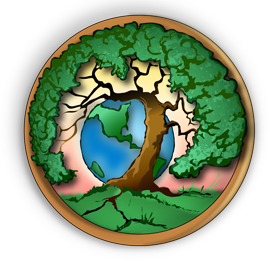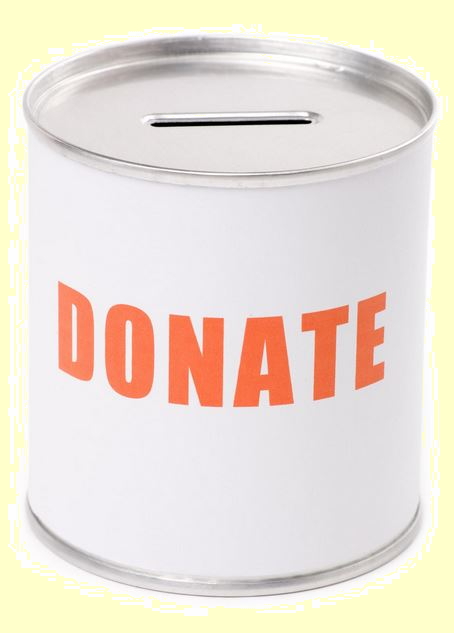> New Website <
www.FriendsOfTheTreesBotanicals.com
Order Herbs Here
Check in on News from the Global Earth Repair Foundation
Going organic. Bhutan and Kerala, India set the pace
Hi farmers and friends,
I couldn’t resist sending this information on.
Bhutan could within a decade become the first country in the world to go wholly organic in its food production, according to key politicians in the Himalayan kingdom. Political parties in the Himalayan kingdom unite to eradicate chemical fertilizers and pesticides as part of its Gross National Happiness program. Agriculture and forests minister Lyonpo Yeshey Dorji and opposition leader Pema Gyamtsho, who held the post in the previous government, say there is a united commitment to rid the country of chemical fertilizers and pesticides.
For a detailed article go HERE.

I am just now reading a 2014 book “India’s Organic Farming Revolution: What it Means for our Global Food System”. Written by Sapna E. Thattathil.
The title is somewhat misleading since almost all the coverage is on the state of Kerala. Kerala is arguably one of the most progressive states in India and is frequently cited as one of the best examples on the international scene of a socially-equitable society. It is also a big producer of agricultural exports, particularly spices and 80% of agricultural production is exported. In 2010, the elected prime minister and LDF party in power at the time, actually made it policy to turn the entirety of the state organic within a ten year period. Organic farming was now officially a part of the Agriculture Department’s mandate. In 2011, the LDF government in Kerala decided to ban nearly 20 types of highly toxic insecticides. The subsequent government is not as favorable but has not reversed the policy.
Of course there are a lot of steps that went into developing the kind of government that would champion organic agriculture. The book does into the history of Kerala since India’s independence. Suffice it to say that in 1996 Kerala’s government launched the People’s Campaign for Decentralized Planning. This became popularly known as the People’s Plan. “The People’s Plan gave local village communities called grama sabhas control over 35 to 40% of the state’s annual planning budget. These individual communities now decide how to use state funds within their constituency.” Quote from Thattathil. These local planning groups did extensive inventorying of local resources and ecosystems in the process of developing local plans.
India’s 2002 National Biodiversity Bill called for each state to establish a Biodiversity Board. The Kerala State Biodiversity Board (KSBB) was formed in 2005. One of their projects is the People’s Biodiversity Register which works with the Peoples Plan network to “set up projects throughout Kerala to collect information about the history and uses of plants and animals, as well as traditional knowledge about them while fostering local participation in the government management of resources.” Quote from Thattathil.
In 2007 the Biodiversity Board began to look at agriculture and it was quickly obvious that the use of pesticides in particular were badly damaging Kerala’s biodiversity. With the support of the prime minister (like a US governor) the Board developed a document to gradually phase out chemical pesticides. It would make organic the state policy. Led to its logical conclusion, non-organic farming would become illegal. Not surprisingly there was big pushback by the agricultural establishment, ag schools and extension. They produced a watered down version. After over a year of negotiations the organic proponents were able to get a relatively strong bill passed making organic the preferred government agriculture policy.
I have read a lot of international literature on agroforestry and Kerala has often been mentioned as one of the hotspots for traditional agroforestry mixed farming systems. The permaculture literature also contains a lot of references to the traditional systems in Kerala. This treasure trove of traditional agroforestry systems is shrinking due to agricultural policy which promotes and subsidizes chemical, export agriculture. These traditional systems will be encouraged if the organic crowd wins.
It will be very interesting to watch how this turns out in Kerala. Will the people’s movements win out or the lackeys of globalization? Stay tuned.
If this piques your interest and you want to know more you can buy the book from Amazon for $11.43 at the moment.
If you don’t mind reading on a computer you can view a version of the book HERE. This link is to her Dissertation at the University of California, Berkeley.
In this conversation it should be pointed out that some counties in the USA have passed initiatives which ban NGOs. Josephine County, Oregon being one of the recent ones. Maui, Hawaii and Kauai counties in the state of Hawaii have also passed anti GMO initiatives. Monsanto, etc. are taking this all to court, but there is no doubt that popular support for organic is growing.
THE BIG PICTURE - Book Review: "Energy Basis for Man and Nature" by Howard T. Odum and Elisabeth C. Odum
 I want to promote a book I just read: "Energy Basis for Man and Nature" by Howard T. Odum and Elisabeth C. Odum. 1970. McGraw-Hill Book Co. I just ran across a copy in a used bookstore in Darby, Montana. I recognized it as a book that David Holmgren, co-founder of permaculture, cited a lot.
I want to promote a book I just read: "Energy Basis for Man and Nature" by Howard T. Odum and Elisabeth C. Odum. 1970. McGraw-Hill Book Co. I just ran across a copy in a used bookstore in Darby, Montana. I recognized it as a book that David Holmgren, co-founder of permaculture, cited a lot.
The Odum’s were very priescent in their book. Here we are 34 years later and the world is still galloping away down the wrong path. The Odum’s particularly said that money supply should be constricted and not increased to go through the transition safely. Instead the central banks have gone crazy with expanding the money supply with their quantitative easings. Exactly opposite.
The Odum's were pre-peak oil. Their book intertwines ecology and energy demands by humans. They clearly predicted the collapse if humanity continued down its then current path. The ecology is big picture stuff. It will take several re-readings to grasp that part.
They devoted a bit of the book to what path humanity needs to take if we are to avoid a large, messy population collapse. Alas, we have taken the path to collapse. Several points piqued my interest.
If humanity were to discover a new. large energy source to surpass our fossil fuel subsidies that humans would quickly so pollute and destroy the natural world that only insects and micro-organisms would survive. This is one of the reasons I am not into new energy sources.
That pollution, like population, peaks later than peak oil. Population falls. This is shortly followed by much less pollution. Following this thread of thought, future society will have less population and live in a cleaner, less-polluted environment.
The Odums say that the way for humanity to thrive is to base society on the solar energy of the sun, transformed by healthy ecosystems into renewable resources.
A good book for people who like to look at the big picture & ecosystem flows.





















